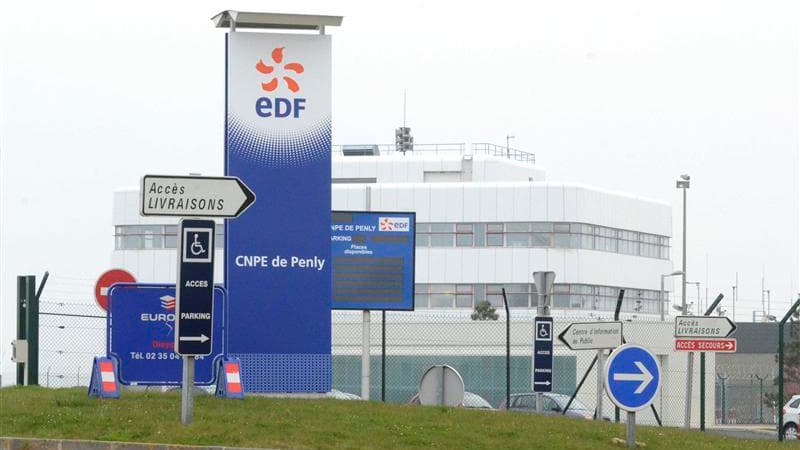EDF plans to confirm its nuclear production target for 2023 despite the revision of its control and repair plan for certain reactors following the discovery of new cracks in the pipes of French power plants, two sources with direct knowledge of the matter told Reuters.
These sources, however, stressed that the updated plan had yet to receive the green light from the Nuclear Safety Authority (ASN), adding that EDF was awaiting a decision during the week.
If validated, the public electrician could maintain its nuclear production target of between 300 and 330 terawatt-hours (TWh) in 2023.
Review of the service and repair plan
EDF announced at the beginning of March the detection of a major crack near a weld in a safety circuit of reactor No. 1 at the Penly power plant (Seine-Maritime), as well as two “thermal fatigue” cracks in the lines of the Penly No. 2 reactor and the No. 3 reactor of the Cattenom power plant (Moselle).
These new cracks forced the group to review its inspection and repair plan -based on the already identified defects of the so-called “stress corrosion” (SCC)- which provided for the systematic and preventive replacement at the end of 2023 of the pipes of seven of 1,300 megawatts (MW), raising questions about its ability to turn around production.
“In case ASN accepts the plan proposed by EDF, the production target of 300 to 330 TWh would be maintained,” a source interviewed by Reuters said.
renationalization
According to another source, the new inspection and repair program is “practically the same” as the previous one, although it now includes priority verification of the pipes whose welds were repaired during the construction of the reactors, an intervention that would probably have aggravated the stress. corrosion phenomenon.
“The producible range is the same,” added this source. An ASN spokesman declined to comment on this information, saying only that EDF’s updated program was “under review.” EDF and the energy ministry had no comment.
EDF, in the process of complete renationalisation, is under pressure to improve its performance after having suffered a historic net loss of 17.9 billion euros in 2022, due in particular to a 23% drop in nuclear fleet production French (at 279.0). TWh) linked to corrosion problems already detected and numerous standard maintenance operations.
Source: BFM TV


